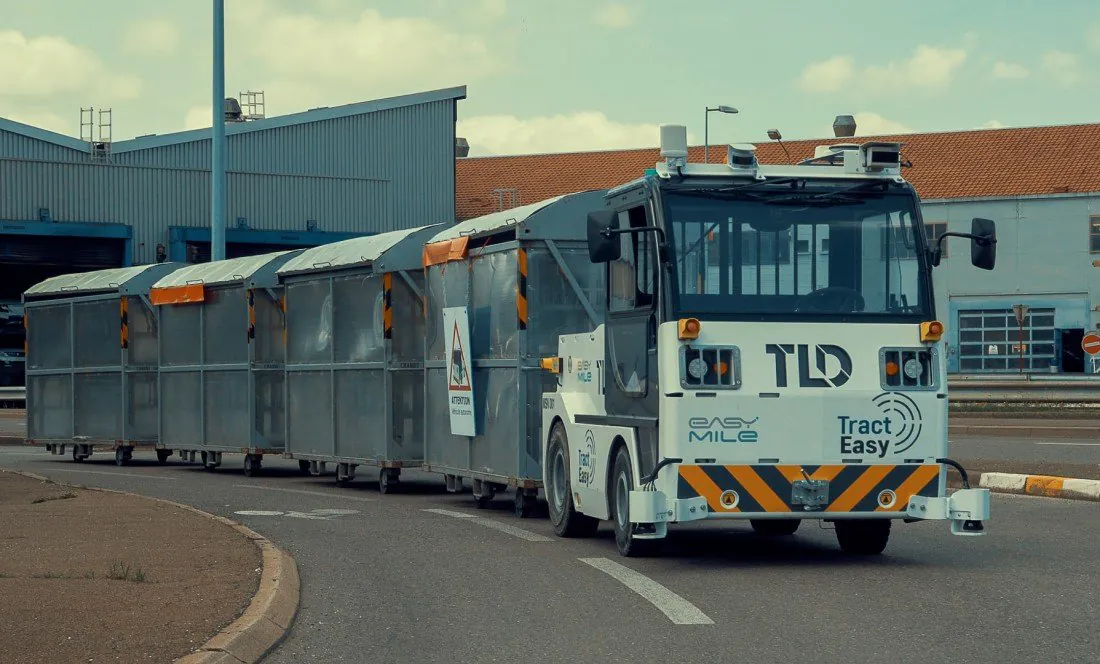Artificial Intelligence
Supply Chains after Covid-19: How Autonomous Solutions are Changing the Game

Early measures by the material handling industry to curb the coronavirus pandemic saw border and plant closures all over the world. While for machine and vehicle manufacturers in eastern Europe and China production is in full swing again, the rest of Europe, North America and other western countries are struggling to get back to their pre-Covid-19 production strength.
Restrictions in freight transport across Europe are still very noticeable and are causing bottlenecks in supply chains. The strict stay-at-home-orders imposed in most European countries to contain the pandemic have had and are having a major impact on industrial production as the personnel are simply missing on site.
Security measures like keeping minimum distance or wearing masks are proving to be an organizational challenge for many production facilities around the world. In order to be able to comply with the safety requirements, in many premises only half of the workforce is allowed on-site, or the production line is divided into shifts. This in turn is restricting the flow of goods. Even when components exist, they stockpile, and cannot be integrated due to a lack of staff or time for those on reduced activity.
After the crisis, the industry will face new challenges. There is already speculation about a trend moving away from globalization towards regionalization. It is not necessarily the sourcing of production that could be affected by a possible regionalization, but rather warehouse management. Regardless of restricted supply chains, access to material inventory is essential for every production line. As a lesson-learned from the Covid-19 crisis, we could see a move from large central warehouses to smaller regional warehouses.
The automotive industry, for instance, was hit hard by supply shortages due to restrictions stemming from the pandemic. Automotive OEMs and their suppliers have long and complex supply chains with many steps in the production process. After the experienced bottlenecks, their follow-up measures might include a diversification of suppliers, as well as the decentralization of inventories in order to maintain agility in case of a crisis.
This presupposes digitalization of warehouse management: if existing stockpiling data is used rationally, transparency in the entire supply chain can easily be created. This would mean everyone involved could use existing data to optimize their processes. This requires intelligent warehouse management systems (WMS) and intelligent solutions for material handling to work hand-in-hand.
Automated guided vehicles (AGVs) are not a novelty in in-house material handling processes but their evolution could hold the key to the industry’s future. Since their introduction, technologies in autonomous vehicles have developed rapidly, enabling the transport of people in complex environments. Bringing this level of intelligence to industrial vehicles hails the next era of logistics automation: new AGV generations accessing complex outdoor environments are a real game changer and could potentially become more attractive after the Covid-19 crisis. As these vehicles become increasingly deployed in dynamic environments without infrastructure, these technologies have quickly migrated from manufacturing applications to supporting warehousing for manufacturing and distribution.
The process automation in supply chains – part of the so-called Industry 4.0 – will play a significant role. It could allow companies to keep or even reduce overall logistics operational costs, and eventually maintain a minimal operational flow even in times of crisis.
Rethinking the industrial supply chain: intelligence is key
The autonomous tow tractor TractEasy by autonomous technology leader EasyMile is a perfect example of this new generation. It masters the automation of outdoor and intralogistics processes on factory premises, logistics centers and airports. The company is currently demonstrating the maturity of these autonomous tow tractors at automotive supplier Peugeot Société Anonyme (PSA)’s manufacturing plant in Sochaux, France. Operated by GEODIS, PSA is using the tractor to find opportunities to optimize costs in the flows on its site.
The impact of the ongoing crisis has revealed the fragility of existing supply chains. Companies are reassessing large and complex procurement networks. Ultimately, the Covid -19 pandemic is putting supply chains to the test, but global supply chains should be prepared for crises as part of risk management anyway. The sheer number of natural disasters in recent years has meant that the international supply chains have been repeatedly overhauled. From this point of view, the Covid-19 crisis is an example of unpredictability that supply chains have to adapt to in order to develop.
What is certain is that the industry is on an upward trend toward more sustainable and stable industrial ecosystems. Automation is a concept that will play a major role in these future considerations, from manufacturers to logistic operators across the globe.










